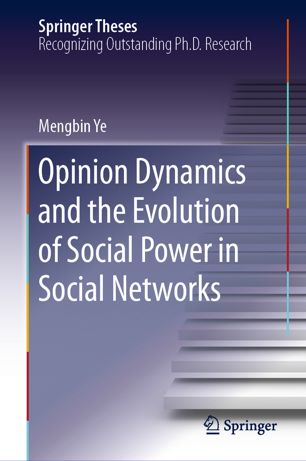

Most ebook files are in PDF format, so you can easily read them using various software such as Foxit Reader or directly on the Google Chrome browser.
Some ebook files are released by publishers in other formats such as .awz, .mobi, .epub, .fb2, etc. You may need to install specific software to read these formats on mobile/PC, such as Calibre.
Please read the tutorial at this link: https://ebookbell.com/faq
We offer FREE conversion to the popular formats you request; however, this may take some time. Therefore, right after payment, please email us, and we will try to provide the service as quickly as possible.
For some exceptional file formats or broken links (if any), please refrain from opening any disputes. Instead, email us first, and we will try to assist within a maximum of 6 hours.
EbookBell Team

5.0
68 reviewsThis book uses rigorous mathematical analysis to advance opinion dynamics models for social networks in three major directions. First, a novel model is proposed to capture how a discrepancy between an individual’s private and expressed opinions can develop due to social pressures that arise in group situations or through extremists deliberately shaping public opinion. Detailed theoretical analysis of the final opinion distribution is followed by use of the model to study Asch’s seminal experiments on conformity, and the phenomenon of pluralistic ignorance. Second, the DeGroot-Friedkin model for evolution of an individual’s social power (self-confidence) is developed in a number of directions. The key result establishes that an individual’s initial social power is forgotten exponentially fast, even when the network changes over time; eventually, an individual’s social power depends only on the (changing) network structure. Last, a model for the simultaneous discussion of multiple logically interdependent topics is proposed. To ensure that a consensus across the opinions of all individuals is achieved, it turns out that the interpersonal interactions must be weaker than an individual’s introspective cognitive process for establishing logical consistency among the topics. Otherwise, the individual may experience cognitive overload and the opinion system becomes unstable. Conclusions of interest to control engineers, social scientists, and researchers from other relevant disciplines are discussed throughout the thesis with support from both social science and control literature.